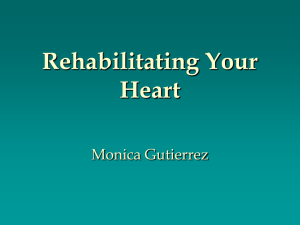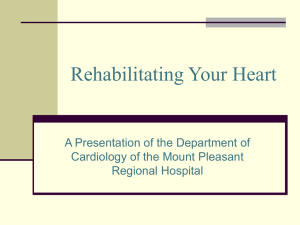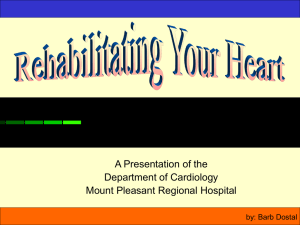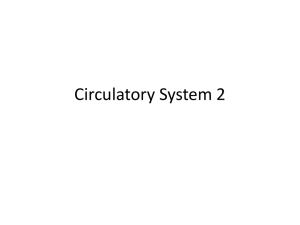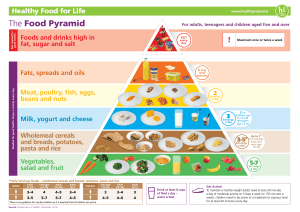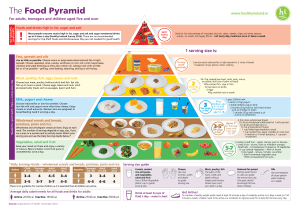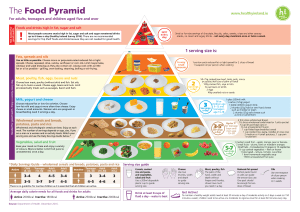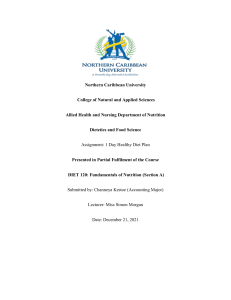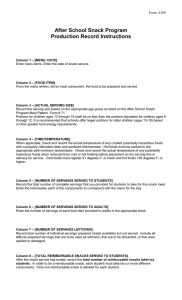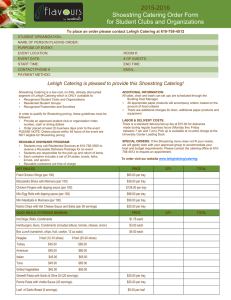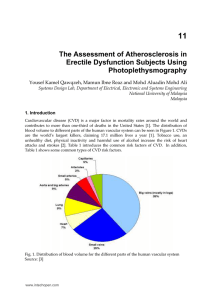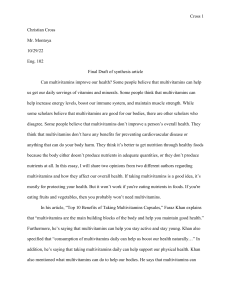Rehabilitating Your Heart A Presentation of the Department of Regional Hospital
advertisement
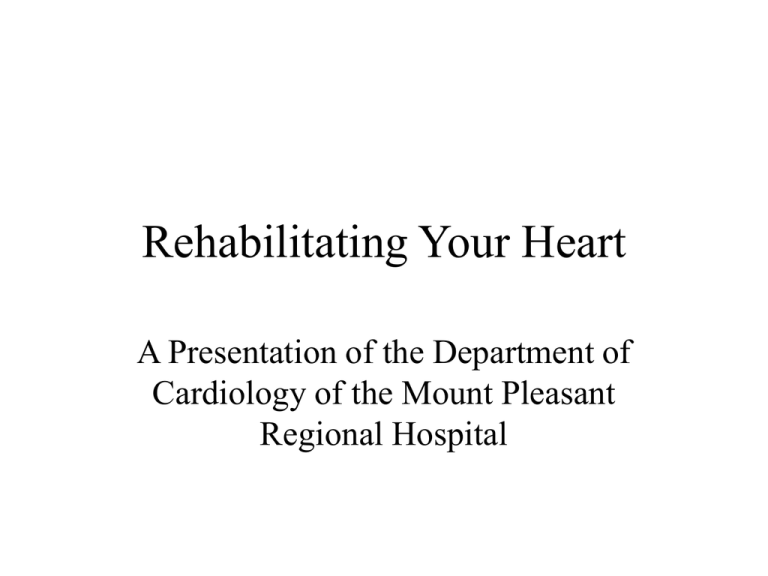
Rehabilitating Your Heart A Presentation of the Department of Cardiology of the Mount Pleasant Regional Hospital If you have heart disease, you’re not alone. • Over 1.5 million Americans have heart attacks every year. • Americans spend more money are heart disease than any other illness—$80 billion per year. • More people die of cardiovascular disease than from all other causes of death combined. What Is Heart Disease? • Atherosclerosis: hardening and clogging of the arteries. • Heart attacks and angina pectoris are caused by atherosclerosis of the coronary arteries What Causes Heart Disease? • • • • • • Genetics and other things we can’t control Smoking Obesity Hypertension (high blood pressure) Inactivity (sedentary lifestyle) Excess stress and tension How Can You Rehabilitate Your Heart? • • • • • Diet Exercise Stress Management Substance Management Medications Dietary Guidelines • Eat a low-fat diet (10-30% of calories from fat) • Avoid foods with cholesterol • Eat 3–5 servings of vegetable group daily • Eat 2–4 servings of fruit group daily • Eat 6–11 servings of grain group daily • Eat more fish and less red meat Exercise Guidelines • Type: Use large muscle groups (legs): walking, hiking, biking, skating, jogging, dancing, kick-boxing, etc. • Duration: 20 to 60 minutes • Frequency: At least 3 times per week • Intensity: Get heart rate up to 60 to 80% of maximum. Max = 220 – Age in years Stress Management Guidelines • Promote informal social activities with family and friends • Manage your time wisely • Take time to rejuvenate • Be kind but assertive • Apply relaxation techniques • Meditate and/or pray Substance Management Guidelines • Avoid smoking • Reduce or omit caffeine • Reduce alcohol consumption Prescription Medications • Cholesterol and triglyceride lowering drug, e.g., Lipitor (Atorvastatin) • Blood thinning drug, e.g., Plavix (Clopidogrel) • Blood pressure lowering drug, e.g., Lotrel Recommended Over-the-Counter Drugs • Baby aspirin (to help thin the blood) • Vitamins C and E (antioxidants to prevent arterial wall damage) • Multivitamins (to improve overall health) Bibliography • Dr. Dean Ornish’s Program for Reversing Heart Disease, Random House, New York, 1990. • Big Book of Healthy Family Dinners, Better Homes and Garden, De Moines, 1999.
